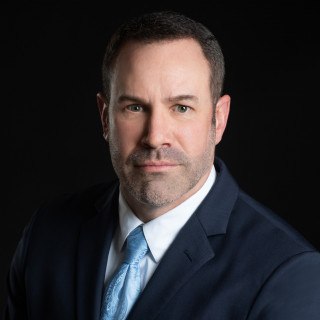Filter by
What a Personal Injury Lawyer Can Do for You
A personal injury lawyer specializes in helping individuals who have been physically or emotionally injured due to the negligence or wrongful actions of another party. Whether you've been hurt in a car accident, suffered a slip and fall, or experienced medical malpractice, a personal injury attorney works to ensure you receive fair compensation for your injuries. They can help you recover damages for medical bills, lost wages, pain and suffering, and other related expenses.
Personal injury lawyers act as your advocate, navigating the legal system on your behalf and dealing with insurance companies to ensure you get the compensation you deserve. They understand how to handle complex legal matters and help you avoid common pitfalls.
When Should I Hire a Personal Injury Lawyer?
Hiring a personal injury lawyer can be beneficial in many situations where you've been harmed due to another's negligence. Some key scenarios include:
- Severe injuries: If you've suffered significant or permanent injuries that result in substantial medical bills, a lawyer can help ensure you are fairly compensated.
- Long-term or permanent disability: Injuries that affect your ability to work or require ongoing medical treatment are complex, and a lawyer can help estimate long-term damages.
- Disputed liability: If the responsible party or their insurance company denies liability for your injury, a lawyer can gather evidence and advocate on your behalf.
- Insurance company lowball offers: Insurers often try to settle personal injury claims for as little as possible. A lawyer can negotiate to get you a fair settlement.
- Medical malpractice claims: Injuries caused by a doctor, nurse, or healthcare provider due to negligence require a personal injury lawyer experienced in medical malpractice law.
- Exposure to hazardous substances: If you've been injured due to exposure to toxins, chemicals, or dangerous substances, a lawyer can help pursue legal action.
Hiring a lawyer early in the process is crucial, especially if you're unsure of the full extent of your injuries or damages.
What Does a Personal Injury Lawyer Do?
A personal injury lawyer provides a wide range of services to guide you through the legal process and maximize your compensation. They can:
- Evaluate your case: A lawyer will assess the strength of your claim and determine whether you have a viable case.
- Investigate the incident: Gathering evidence such as police reports, witness statements, medical records, and expert opinions is key to building a strong case.
- Negotiate with insurance companies: Lawyers handle communications with insurance companies to ensure you receive a fair settlement and aren't taken advantage of.
- File a lawsuit if necessary: If a fair settlement can't be reached, the lawyer can file a personal injury lawsuit on your behalf and represent you in court.
- Help calculate damages: This includes medical expenses, lost wages, future medical needs, pain and suffering, and emotional distress.
- Prepare and file legal documents: Lawyers handle all the paperwork and deadlines associated with your case, including filing motions and discovery requests.
- Represent you at trial: If your case goes to trial, the lawyer will argue your case before a judge and jury to obtain the compensation you deserve.
How Are Personal Injury Lawyers Paid?
Most personal injury lawyers work on a contingency fee basis. This means they only get paid if they win your case, either through settlement or a court judgment. Here’s how it works:
- Contingency fee percentage: The lawyer will take a percentage of the settlement or award, typically between 25% and 40%, depending on the complexity of the case and the stage at which it's resolved.
- Costs and expenses: In addition to the contingency fee, the lawyer may deduct other costs associated with the case, such as filing fees, expert witness fees, and court costs. These expenses are often advanced by the lawyer and repaid out of the settlement.
- No upfront payment: Since the lawyer’s fee is contingent on winning, you usually don’t pay anything upfront.
Always discuss the lawyer’s fee structure during your consultation to avoid surprises.
How Much Does a Personal Injury Lawyer Cost?
The cost of hiring a personal injury lawyer depends on the specifics of your case and the lawyer’s fee structure. However, since most personal injury lawyers work on a contingency fee basis, the amount you pay will depend on the outcome of your case. Here are some general guidelines:
- Contingency fees: Typically range from 25% to 40% of the settlement or award. The percentage may increase if the case goes to trial or requires an appeal.
- Other costs: In addition to the lawyer's fee, you may be responsible for case-related expenses such as expert witness fees, medical record retrieval fees, and court costs. These are often deducted from your settlement, so you won't have to pay out of pocket.
While the cost may seem high, hiring an experienced lawyer can significantly increase the amount you recover, making it a worthwhile investment.
Top Questions to Ask a Personal Injury Lawyer
Before hiring a personal injury lawyer, it's essential to ask questions to ensure you’re choosing the right representation. Here are some important questions to ask:
-
What is your experience with personal injury cases like mine?
Make sure the lawyer has handled cases involving similar injuries or accidents. -
What is your fee structure?
Clarify whether the lawyer charges a contingency fee and what percentage they will take from any settlement or award. -
How long will my case take?
While it's hard to predict, a lawyer can give you an estimate based on similar cases they’ve handled. -
How often do you take cases to trial?
Some lawyers prefer to settle quickly, while others are more comfortable going to court if necessary. -
Will you personally handle my case?
In larger firms, junior lawyers or paralegals may handle some aspects of your case, so it's important to know who will be managing your claim. -
Do you have references from past clients?
Speaking with past clients can provide valuable insight into the lawyer’s effectiveness and professionalism.
How to Check the Credibility of a Personal Injury Lawyer
To ensure you’re hiring a credible personal injury lawyer, take the following steps:
- Check bar association records: Verify that the lawyer is licensed and in good standing with your state’s bar association. Look for any history of disciplinary actions.
- Read client reviews and testimonials: Online platforms like Avvo, Martindale-Hubbell, and Google reviews can provide insight into the lawyer's reputation and client satisfaction.
- Look at their track record: Review their experience with personal injury cases, particularly how many cases they’ve successfully resolved or taken to trial.
- Ask for references: Credible lawyers should be willing to provide references from past clients who can vouch for their work.
- Check professional memberships: Lawyers who are members of respected organizations, like the American Association for Justice (AAJ), often have a solid reputation in the field.
What Should I Prepare for My First Consultation?
To get the most out of your first meeting with a personal injury lawyer, prepare the following:
- Detailed account of the accident: Write down everything you remember about the incident, including dates, times, and locations. Include any witnesses or police reports if available.
- Medical records and bills: Bring any documentation of your injuries, treatments, and associated medical costs.
- Insurance information: Provide your insurance details and any communication you’ve had with the other party’s insurance company.
- Employment and income records: If your injury has impacted your ability to work, bring proof of lost wages or reduced earning capacity.
- Photos or videos: If you have photos of the accident scene, your injuries, or property damage, bring them to your consultation.
- Questions for the lawyer: Prepare a list of questions to ask, including how the lawyer will handle your case and what you can expect in terms of timeline and outcome.
By preparing thoroughly for your first consultation, you’ll help the lawyer understand your case more quickly and get a better sense of your legal options.



















